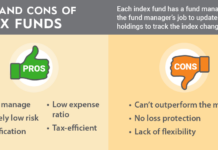
As you grow older and become more independent, you realize that your physical health is not the only thing that matters. A healthy financial life helps alleviate your stress levels and promotes a more stable lifestyle.
Although there is no specific score or number that measures our financial health, it’s easy to determine your financial health by knowing where you stand based on key financial health indicators. Issues like retirement planning, budgeting, saving, investing, insurance, and debt management are some ways to help you determine where your financial health stands.
Below is an in-depth analysis of what is financial health and why it matters;
What Is Financial Health?
Financial health is a finance term used to describe one’s monetary situation. Financial health helps to measure your ability to meet your financial obligations and preparedness for emergencies.
What It Means to Be Financially Healthy
Savings
Individuals with healthy finances usually have an emergency fund and savings account for other goals, like buying a car or placing a down payment for a mortgage.
For starters, an emergency fund cushions them during emergencies, like illness or job loss. Emergency funds ensure that they always have something to fall back to rather than going into debt to cater to these needs.
Second, saving for goals like buying a house or a car allows you to get a lower loan amount when relying on financing. With this, your loan will be cheaper compared to when you are looking for 100% financing.
Credit Score
A great credit score is an indication of a healthy financial position. It shows that you’re a responsible borrower. If you have a high credit rating, it’s easier for you to get a loan whenever you require one. It also gives you a chance to have better terms compared to anyone with a low credit rating.
Debt
Are you so deep into debts that your monthly survival depends on borrowing more money? When your entire income goes into meeting debt obligations, it means you’re in a bad financial position.
Only a small ratio of your income needs to go to paying debts, while the rest goes into savings and household expenses. The preferred ratio for this is 50/30/20, where 50% is for obligations, 30% is for debts, and 20% goes into savings. If you’re spending more than 30% of your after-tax income on debts, you need to reevaluate your finances.
Retirement
Even with a well paying job, some people still want to retire early. If you wish to go on early retirement or wait until it’s time to retire, having a good plan for your retirement allows you to have good financial health.
It’s always advised to have about 10-15% of pre-tax income set aside for retirement. This will allow you to enjoy your retirement without affecting your standards of living.
Insurance
Do you have an insurance cover, not just for life but other items like property? A good insurance cover cushions you from unexpected accidents that result in huge losses. For example, if your car gets into an accident or your house burns down, will you need cash to meet these expenses, or are you covered?
People with healthy finances have insurance covers, like life, health, auto, and home, to cover them in case of any unexpected events.
How To Measure Your Financial Health
As mentioned earlier, there is no specific score or number to determine your financial health. However, you can use the below questions for self-assessment;
Do you own an emergency fund?
Using your monthly budget, you can tell how much you need to meet your financial obligations every month. Compare your budget with the emergency fund you have and see how many months you can last relying on your emergency fund only. The rule is always to have at least 3 to 6 months of your budget in an emergency fund.
What is our net worth and Debt-to-income?
When you stress test your finances, do you have more debts than income? Negative net worth shows you have more debts than income. It’s an indication of a stressed finance position.
When using the debt-to-income ratio, you can compare your monthly debt payments to your income. It’s always good to keep a debt-to-income ratio of 36% and below. But, if you can keep it lower than 36%, the healthier your financial position.
Do You Have Retirement Savings?
How many years do you have until you clock retirement age? Do you have a retirement savings account? If so, do you think you’re on track to meet your retirement goal? If you are close to retirement, you should have more savings than a young individual with years to hit retirement age.
Is Your Insurance Cover Enough?
This touches mostly on life or health insurance covers. You can estimate this by asking for how long would your family live comfortably without depending on your income. Mostly, life insurance estimates require one to have 10-times of one’s annual income.
Of course, the answers to this will differ, depending on whether you’ve dependents like a spouse, children, or elderly parents. If you’re single, your life insurance needs will differ from someone with kids or a spouse.
Red Flags
Below are the red flags you can work on to improve your financial health;
- Your savings can’t cater to a financial emergency.
- You don’t have a budget.
- Your credit card balances are high, and you can’t afford to pay it.
- Your credit applications for items like a car or property are not going through due to low scores.
- You have to turn to risky lenders with expensive financial products.
- You’re always stressing about money.
How To Make It Better
If the above information indicates your financial health could use some revamping, here’s how you can improve it:
Paying Off Debts
The first step to healthy financial health is paying off your debts. There are many ways to go about this. You can start by focusing on high-interest rate loans like credit cards. The longer these loans remain outstanding, the more costly they get due to interest payments.
Another option is to focus on paying off small loans but meeting the minimum payments for high-interest loans. Once the small loans are cleared, you can focus on repaying those with high-interest loans.
If you have multiple debts, you can consider refinancing to have all those loans as one with better terms or start negotiating on a repayment plan with your lender/s.
Improving Your Credit Score
The best way to achieve this is to ensure you pay your loans on time. Also, ensure that you meet the minimum repayment. Another option is to use secured loans.
Save
Start saving if you have no savings. Even if the better part of your income is to ensure you are getting out of debt, find ways to save by budgeting and trimming your expenses. Your aim is to have an emergency fund; then, you can save for other goals like repaying your loans in a lump sum or saving for major purchases.
Have Multiple Revenue Streams
Do not rely on your salary alone or the income you get from your business alone. Find ways to grow your revenue streams, so you have some extra income for expenses or savings.
Financial health is a fundamental key to your overall health. Not everyone is financially healthy, but some strategies can turn the situation around. If you are not financially healthy, start by drawing a financial plan. Then, focus on improving your financial status by saving, earning some more money, and lowering your debt level.











